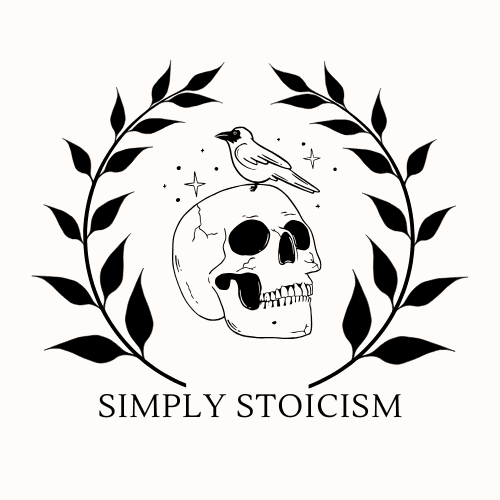The Stoic's Guide to Emotional Intelligence
Learn the ancient Stoic secrets to mastering your emotions and building real emotional intelligence. Practical techniques to stop letting other people control your mental state.

Jon High
·
Dec 8, 2024
You're in a meeting when your coworker Steve takes credit for your work. Your heart rate spikes. Your jaw clenches. You can feel the rage building like a pressure cooker about to explode.
But here's the weird thing: your emotional response isn't actually about Steve being an asshole (though he definitely is). It's about something far more fundamental – your relationship with your own emotions.
The ancient Stoics figured this out two thousand years ago while most of us are still walking around like emotional toddlers throwing tantrums when life doesn't go our way. They developed a framework for emotional intelligence so powerful that it makes modern "mindfulness" look like finger painting.
But before I show you how to use it, let's clear up the biggest misconception about Stoicism: it's not about suppressing emotions or walking around like some emotionless robot. That's about as accurate as saying CrossFit enthusiasts don't like talking about CrossFit…
The real goal of Stoicism is mastering your relationship with emotions – and it's probably not what you think.
The Problem With Modern Emotional Intelligence
We've all heard the standard emotional intelligence advice:
"Feel your feelings"
"Express yourself"
"Let it all out"
And sure, that's better than bottling everything up until you finally snap and try to fight the office printer. But here's what most people miss: simply feeling and expressing emotions doesn't actually make you better at handling them.
It's like saying the solution to being bad at basketball is just to play more basketball. Without proper technique and understanding, you're just reinforcing bad habits.
The Stoic Approach to Emotions
The Stoics had a radically different take on emotional intelligence. Instead of just experiencing emotions, they focused on understanding the machinery behind them. They realized three fundamental truths that most of us miss:
Your emotions aren't caused by events – they're caused by your judgments about events
You can't control events, but you can control your judgments
Most of your emotional suffering comes from fighting reality rather than accepting it
Let's break these down using our friend Steve as an example.
When Steve takes credit for your work, your anger isn't actually caused by his actions. It's caused by your judgment that:
This is unfair
This will harm your career
Steve is a terrible person who needs to be punished
But here's where it gets interesting: none of these judgments are objective facts. They're stories you're telling yourself about what happened.
The Dichotomy of Control: Your Emotional Superpower
The Stoics' most powerful tool for emotional intelligence was something they called the "dichotomy of control." It's deceptively simple: clearly separate what you can control from what you can't.
You can't control:
Steve's behavior
Your boss's perception
Office politics
The past
You can control:
Your response
Your future actions
Your judgments
Your preparation
Most of our emotional suffering comes from obsessing over things we can't control while neglecting the things we can. We get angry about rain instead of bringing an umbrella. We rage about traffic instead of leaving earlier. We stew about Steve instead of documenting our work better.
How to Actually Practice Stoic Emotional Intelligence
Here's where we get practical. The next time you feel a strong emotion bubbling up, try this four-step Stoic practice:
1. Pause and Label (The Distance Creator)
First, create distance between yourself and the emotion. Simply name what you're feeling: "I'm experiencing anger" rather than "I am angry." This slight shift in language creates space for rational thought.
2. Question Your Judgments (The Reality Check)
Ask yourself:
What story am I telling myself about this situation?
Are my judgments definitely true, or just assumptions?
What would this look like to a neutral observer?
3. Focus on Your Sphere of Control (The Power Shift)
Instead of obsessing over what you can't control, ask:
What aspects of this situation can I influence?
What constructive actions can I take right now?
How can I use this as an opportunity to practice virtue?
4. Choose Your Response (The Freedom Step)
Remember: between stimulus and response, there is a space. In that space lies your freedom to choose. You can:
React emotionally
Respond thoughtfully
Do nothing (sometimes the most powerful choice)
Advanced Stoic Techniques for Emotional Mastery
Once you've got the basics down, here are some next-level Stoic practices for developing emotional intelligence:
Negative Visualization (Premeditatio Malorum)
Regularly imagine losing things you value. This sounds depressing, but it actually makes you more grateful and resilient. Plus, you'll be better prepared when shit actually does hit the fan.
The View From Above
Zoom out and imagine viewing your situation from space. Suddenly, Steve taking credit for your PowerPoint doesn't seem like such a cosmic tragedy.
The Other Person's Perspective
Really try to understand why people act the way they do. Maybe Steve is dealing with crushing insecurity or pressure you don't know about. This doesn't excuse his behavior, but it helps you respond more effectively.
Real Talk: Why This Actually Matters
You might be thinking, "This all sounds great, but why should I bother mastering my emotions? Isn't it easier to just tell Steve to go fuck himself?"
Here's why: your emotional intelligence determines the quality of your life far more than your IQ, your job title, or how many zeros are in your bank account.
Every relationship you'll ever have, every opportunity you'll encounter, and every challenge you'll face will be shaped by how well you handle your emotions.
The Stoics understood something profound: true freedom isn't about controlling the outside world. It's about mastering your inner world so that your peace isn't dependent on external circumstances.
Getting Started: Your First Steps
Start small. Don't try to become Marcus Aurelius overnight.
Pick one minor annoyance each day to practice with.
Use the four-step process above.
Keep a journal of your emotional responses and judgments.
Gradually work up to bigger challenges.
Remember: the goal isn't to eliminate emotions – they're a vital part of being human. The goal is to develop a healthier relationship with them so they inform your actions rather than control them.
And the next time Steve tries to take credit for your work? You'll be ready to handle it with wisdom instead of letting him live rent-free in your head.
Because ultimately, that's what Stoic emotional intelligence is about: not letting assholes determine your mental state.
Now that's a superpower worth developing.



